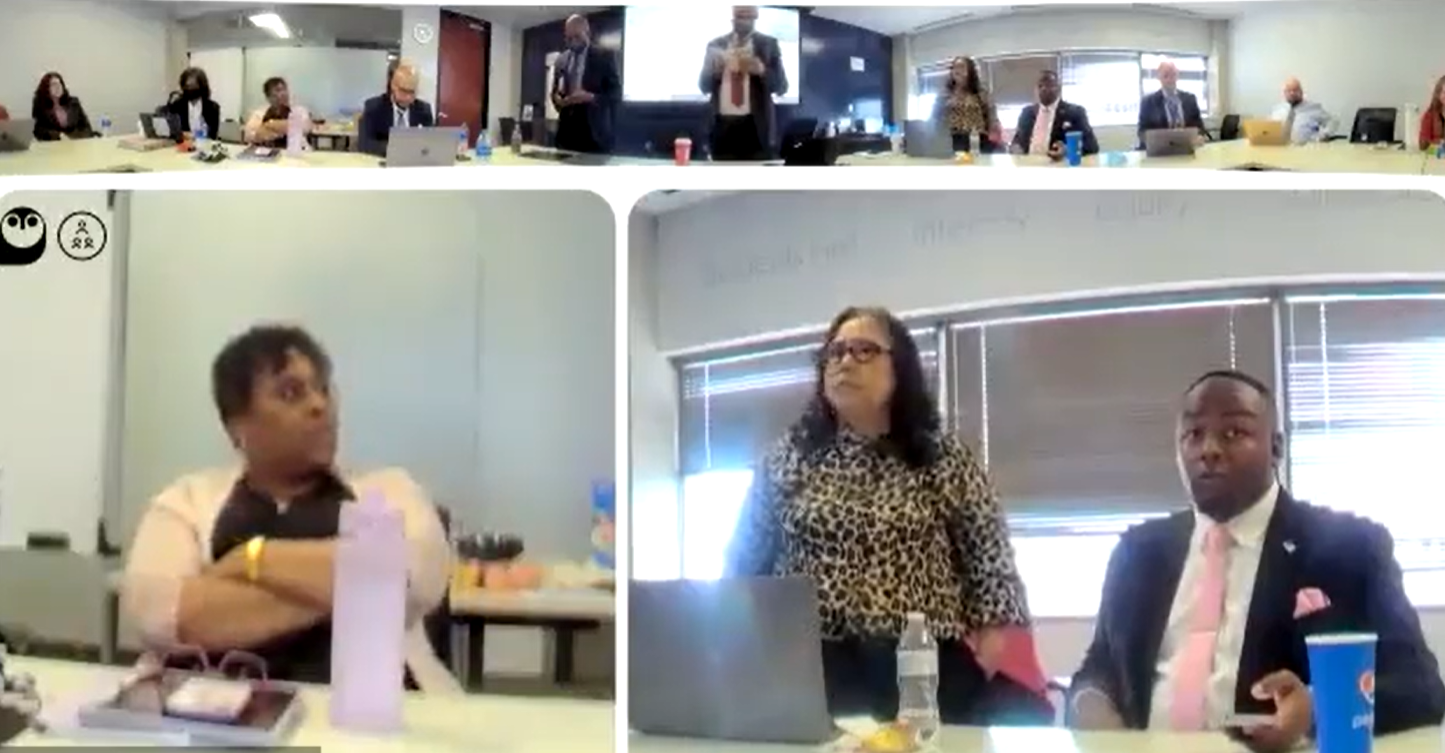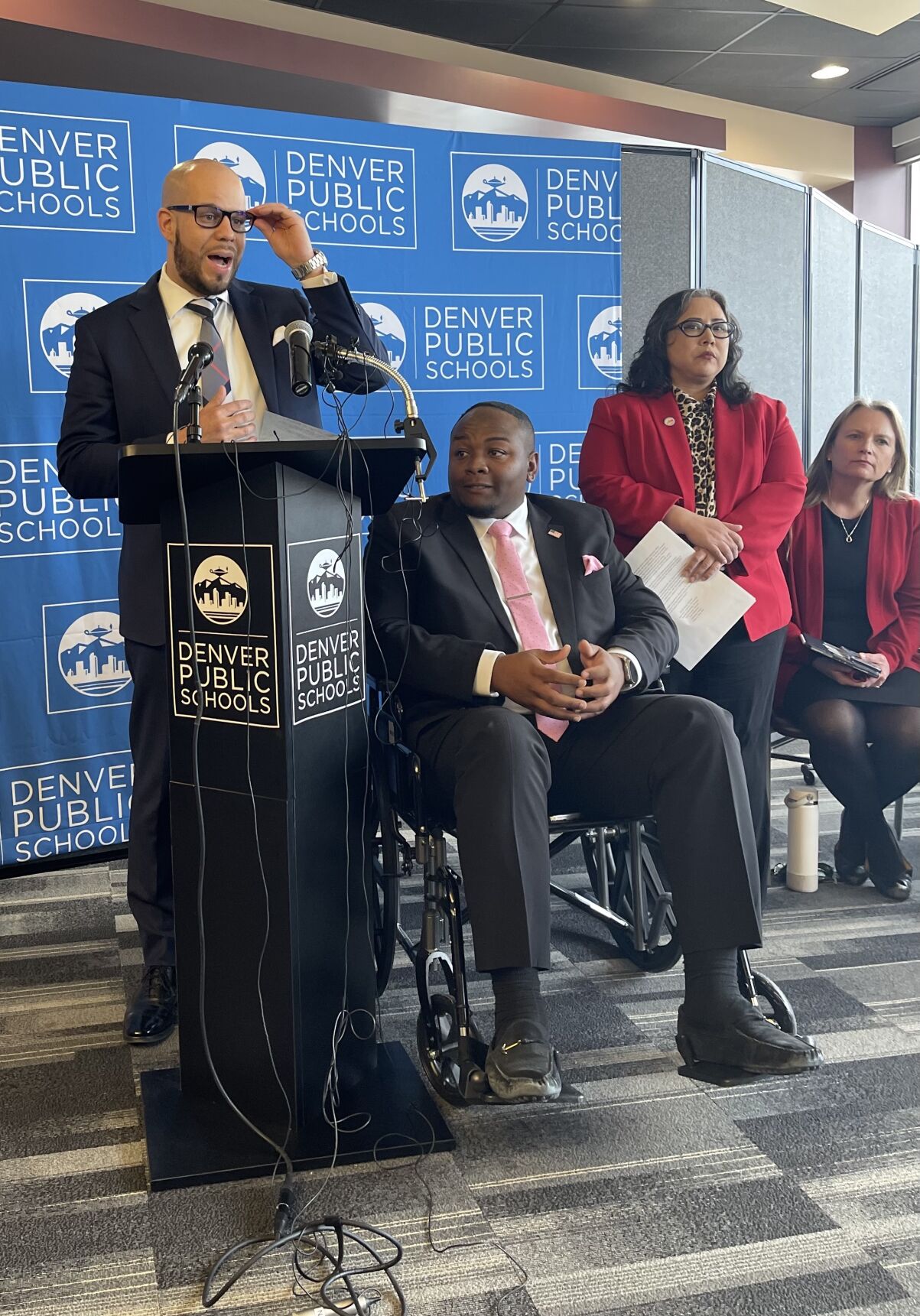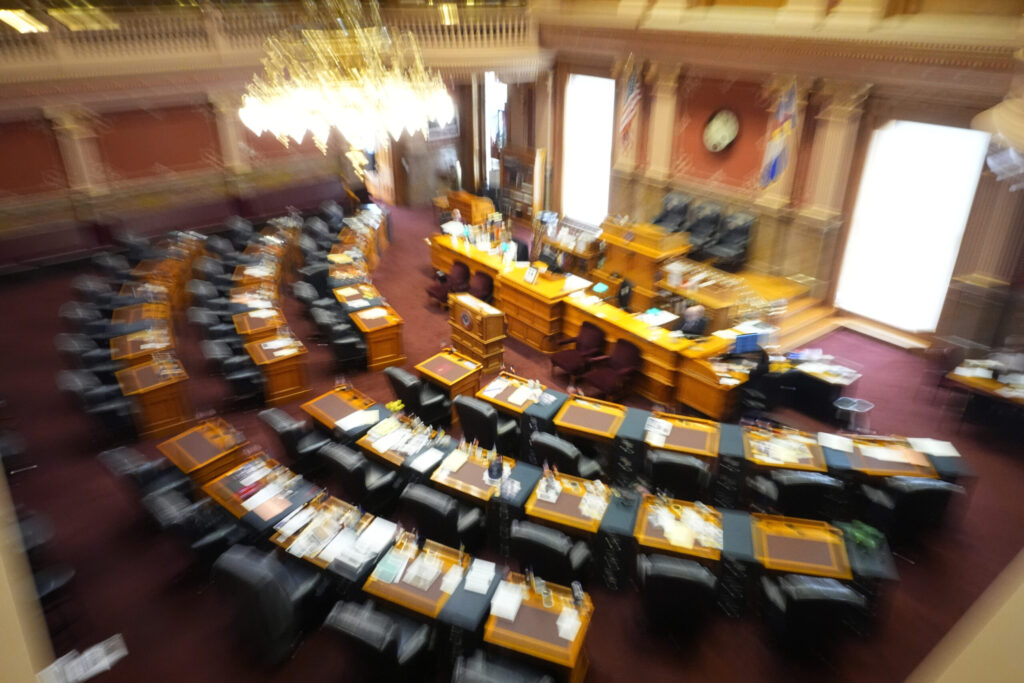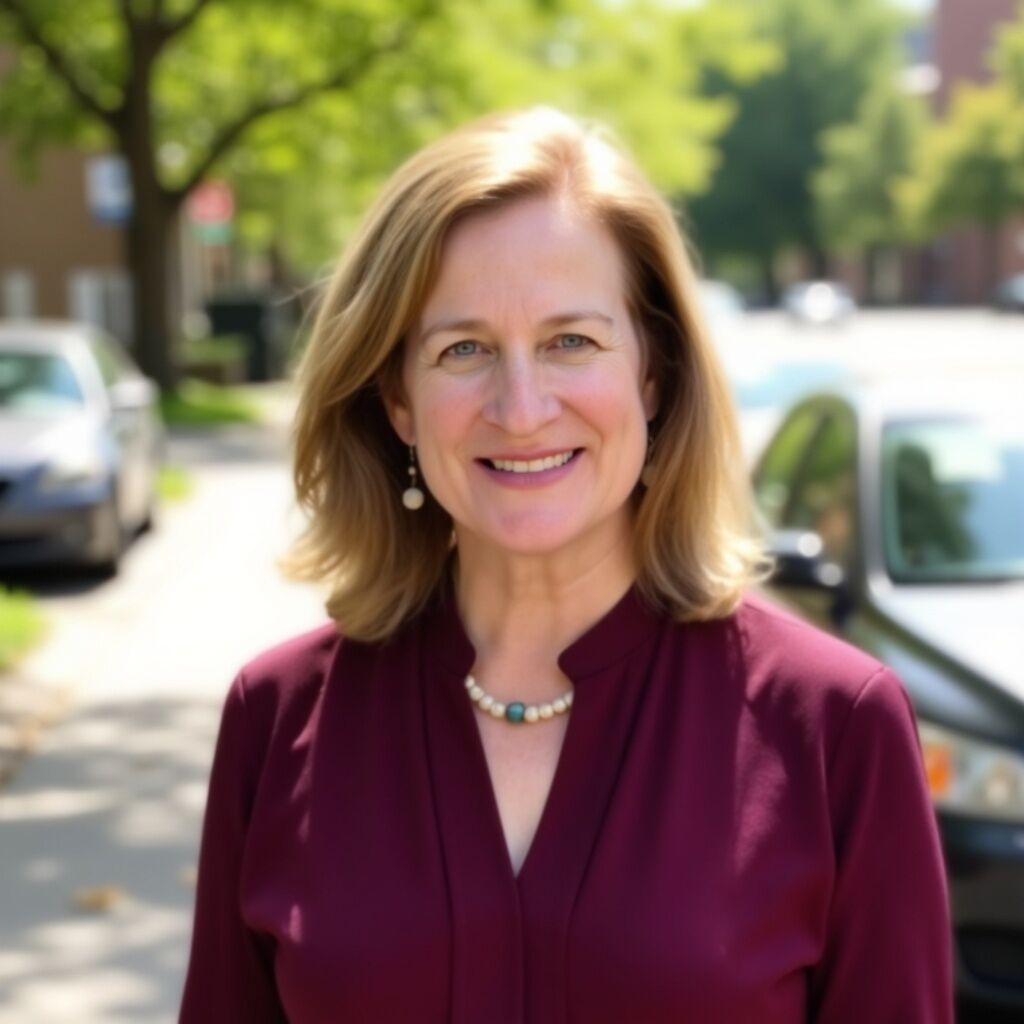DPS in secret crafted policy change to return armed cops to high schools, recording confirms

The Denver Public Schools board released a video recording of its March executive session, the subject of a lawsuit by a media coalition that includes The Denver Gazette and Colorado Politics. A trial judge sided with the coalition, concluding that DPS either “did engage in a substantial discussion of matters” not permitted under the state’s Open Meetings Law or adopted a proposed policy in the executive session in “contravention” of the statutes.
Denver Public Schools’ board members crafted the policy that returned school resource officers to the city’s schools in a closed-door meeting they held in March, a day after a student shot and wounded two deans at East High School, a recording of the meeting confirmed.
Outside of public view, the board members debated, strategized and ultimately decided to release a memo outlining the policy changes, which departed from the board’s decision in 2020 to bar school resource officers from campuses, the video recording showed.
The stated purpose of the executive session was to discuss details of security arrangements or of investigations as a result of the shooting and to talk about individual students, presumably including Lyle Austin, who, police said, later committed suicide after shooting the two East High deans.
The discussion went beyond that, the video showed.
The board members extensively talked about Superintendent Alex Marrero’s decision to unilaterally bring back armed officers at the district’s comprehensive high schools and discussed a resolution offered by one of the board members to officially allow the return of armed Denver police officers to schools.
That resolution ultimately became the basis for the memo the board members later adopted in public.
A coalition of news outlets that included The Denver Gazette and Colorado Politics later sued the DPS board and Stacy Wheeler, the district’s custodian of records, seeking the recording’s release and arguing that the public body violated Colorado’s open meetings laws when it held a March executive session to discuss the return of school resource officers.
Denver District Court Judge Andrew Luxen – who spent two days listening to the five-hour executive session – ruled last month that the district “did engage in a substantial discussion of matters” not stated on the agenda and ordered DPS to release the audio recording.
The five-hour discussion was, at times, confrontational, with board members expressing their frustration at Marrero and vice versa, even as the attendees huddled in the room under intense pressure, knowing local and national media entities awaited their action and the public expected them to respond to the spate of violence at DPS schools.
The board members, with the help of their lawyer and other staffers, went through the memo line by line, discussing and making changes.
“This appeases those who want SROs and those who don’t want SROs,” Vice President Auon’tai Anderson suggested at one point. “So, its not cops or counselors. It’s cops and counselors. We’re getting both of them. We’re asking the mayor to fund these four positions.”
The memo ultimately directed Marrero to work with then-Mayor Michael Hancock’s office for the city to fund armed officers at schools and mental health professionals, such as social workers, psychologists, psychotherapists and therapists, and to devise a long-term safety plan before the end of June.
‘Hero’
During the closed-door meeting, board members expressed their frustration at Marrero for unilaterally inviting back school resource officers to campuses without the district officially taking a stand.
At one point, Marrero said at least one board member leaned in that direction, and he had assumed the school’s elected officials would readily go along with his decision.
“It was the right decision,” he said.
Anderson – the board member who already changed his mind in favor of bringing back the police officers, despite him authoring the 2020 policy to kick them out of schools – countered that one member doesn’t mean the majority of the board.
“Your words put us in danger because you made the community look at us and act like we weren’t responsive to them,” he said. “You’ve made yourself a hero. Everybody is applauding you. Everybody is supporting you right now. … (They’re saying) thank you for your courage, Superintendent Marrero, but (expletive) the rest of the seven board members.”
Marrero replied that Anderson was not alone in facing calls for resignation.
“People are calling for my resignation. Now, I’m painted as a blue guy. I’m not concerned about being the savior or the hero. I don’t think that will be the story when this is all said and done,” Marrero said.
Marrero added that, as a result of him inviting back SROs to campuses, “50% … will hate me.”
Board member Michelle Quattlebaum said she watched TV break the news that Marrero had decided to bring back SROs.
“I didn’t have an opportunity to speak to anyone,” she said. “And if I could be so bold to say it’s a failure of leadership. Our president was there. That was a a failure of leadership. Our superintendent was there. That was a failure of leadership.”
Quattlebaum added: “You’re dealing with people saying, ‘Do something. Do something. Do something.’ I get that. But, at the end of the day, communication needed to happen.”
At one point, Marrero, who looked exasperated, asked the board members: “Who holds you accountable? No one has asked about our students. No one has asked about my staff.”
Bring back SROs
The board members weighed in on the utility and efficacy of bringing back cops on campuses.
Board member Charmaine Lindsay said she favors their return.
“What are they supposed to do if they find somebody with a gun?,” she asked about school staff. “When there’s nobody at the school to offer either any kind of support or any kind of backup to the student that is carrying a gun?”
It’s unacceptable, she argued, to have a situation where “there is no deterrent from any kind of law enforcement.”
Quattlebaum said she had spoken with school community members, who, she said, are looking for “responsible, intentional and comprehensive action.”
Some, she said, did not want SROs back in school.
“If we are doing SROs, it needs to be thoughtful. They can’t come back the way they were. It needs to look different. They recognize the emotional and psychological impact on their friends with having armed police officers in their building,” she said.
‘CNN is here’
Throughout the meeting, the DPS board members were aware – or were reminded by colleagues or staffers – of the parameters of the executive session.
At one point, Aaron Thompson, the district’s general counsel, told members that their discussion “needs to be in the context of the response to the incident, (as) part of the investigation, as a result of the investigation.”
Thompson played a key role in guiding the board throughout the discussion, letting them know what they could or couldn’t discuss.
“I want to give this group as much latitude as I think legally possible to discuss what’s on the board’s mind,” he told them.
At one point, Scott Baldermann, the board member who originally drafted the resolution that became the basis for the DPS memo, asked if it’s legal to pull out his resolution so members could see it and discuss it. Baldermann later left the meeting when the board decided to turn his resolution into a memo.
“I think that it would be legal because again it has to do with security measures,” Thompson responded.
Thompson also offered the board members several options to act in response to the shooting, including getting a commitment from Marrero to adopt certain actions in a public meeting or adopting Baldermann’s resolution.
As the meeting wore on, the board members came to adopt Anderson’s position – that they need to act.
“In one hour,” he said, “we are supposed to go out and face every camera in America … CNN is here, the Today Show is here, Good Morning America is here.”
Marrero reiterated that he was committed to bringing back the SROs, regardless of the board’s position, and that Hancock had told him he would issue an executive order that would accomplish the same.
Options and a strategy – crafted in secret
The board members also talked about how to actually adopt whatever action they ended up taking.
Thompson, the lawyer, noted that the board could also suspend its policy, given the emergency nature of the issue, and bypass first or second readings and go straight to a vote.
“Is there anybody opposed to turning the resolution that was written into a memo from the board, a directive, to the superintendent?” Anderson asked.
None could be heard objecting.
Once they decided to turn Baldermann’s resolution into a memo, they spent at least an hour going through its language, tinkering and modifying it, and decided how to conduct the news conference, including the role for the board members, in announcing the policy change.
Board members then asked their lawyer if they could make changes to the memo in executive session.
Thompson said yes.

luige.delpuerto@gazette.com



Following a string of violence in Denver Public Schools last academic year, the board held a closed door executive session.
Tom Hellauer
tom.hellauer@denvergazette.comTomHellauer
tom.hellauer@denvergazette.com
https://secure.gravatar.com/avatar/a3dc80c0a9d47d671f1f3da872cc0a06?s=100&d=mm&r=g













